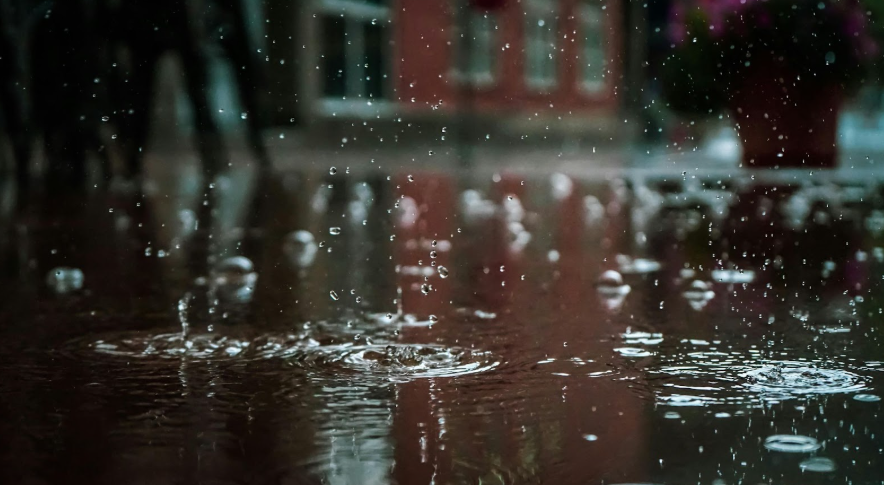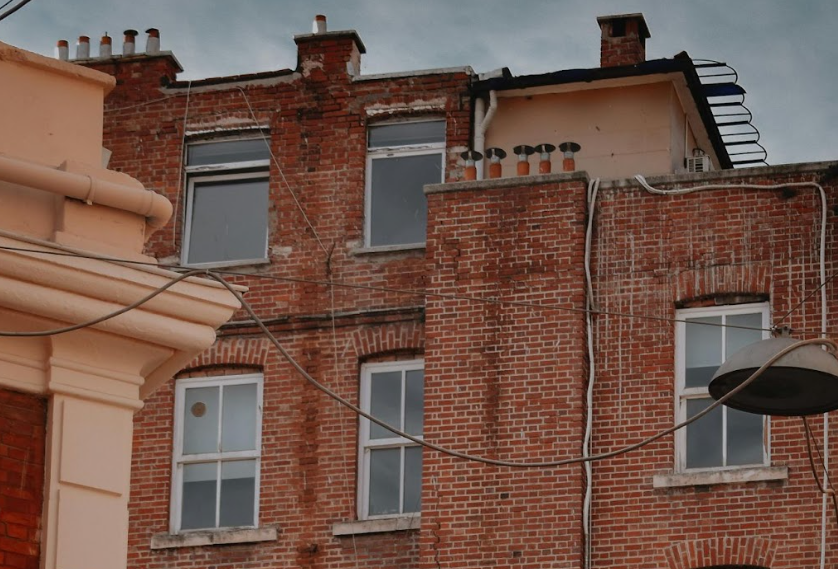
Landlord Inspection Checklist: A Guide for Landlords
This property inspection checklist tells you everything you should check when visiting your rental property
In this guide:
- How to Manage Property Inspections
- Always Give Tenants Notice
- What if the Tenant Won’t Let You In?
- Property Inspection Checklist
Property inspections allow you to spot potential issues, fix wear and tear and check that your tenant is treating the property well.
But if you aren’t thorough you might miss a problem which could grow into an even bigger issue - for example, that leak that you missed could soon turn into damp and cause thousands of pounds in damage.
That’s why we’ve created this property inspection checklist. It includes information on how to manage your inspections as well as what issues to look out for.
How to Manage Property Inspections
Below are the five main property inspection milestones during a tenancy.
Inspect the Property Before the Tenant Moves In
This allows you to verify its condition and take photographs and an inventory - this is a useful reference for later inspections.
Conduct a Property Inspection Within the First Three Months of a New Tenancy
This will give you an early warning if the tenant isn’t looking after the property adequately. However, you should mainly use it to build a stronger relationship with the tenant. Take time to check in with them on how they are doing and answer any questions that they may have about their new home.
Add Periodic Property Inspections to Your Tenancy Agreement
Schedule periodic property inspections with the tenant to ensure that they are treating it well. These should be 1-2 times per year and noted in the tenancy agreement.
Stop Inspecting Good Tenants
If you have a good tenant or you’re sure that regular checks aren’t required, reduce the frequency of inspections. This will show the tenant you trust them.
Perform a Property Inspection When the Tenant Moves Out
When the tenant moves out they should return the property to its original condition. If there is any property damage the inspection allows you to prove it and claim against the security deposit.
Always Give Tenants Notice
Remember, you are legally required to give your tenants at least 24 hours’ notice before you can carry out a property inspection.
However, this is the bare minimum and probably wouldn’t please the tenant. It’s good practice to give them at least a week’s notice and to provide it via an email or text message. Follow up with a friendly phone call to check they received the message and that they are happy to go ahead on the proposed date.
What if the Tenant Won’t Let You In?
If the tenant refuses the property inspection then by law you have to respect their wishes. It’s important to be patient and not push the tenant too hard. Ask them for more information - they may have a good reason for not wanting to let you in.
If the problem persists, remind them that you need access to check the safety of the property and that refusing you access is a breach of your contract.
If they still won’t let you in then you can threaten court action.
Property Inspection Checklist
Here are all the things you should check during a rental property inspection. Some of these are legal requirements and are vital for the health and safety of your tenants. Your tenants’ lives could be at risk and you could be liable for court action if you fail to conduct them.
Safety
The most important things to check on this list are related to the tenant’s safety. Many of these are regulated by law, so it’s important to get them right.
✅ Smoke alarms and CO detectors
Go around the house and test all alarms. Change the batteries or replace them altogether if required.
|
⚠️ Legal requirement |
|
The law states that smoke alarms and carbon monoxide detectors should be checked and, if required, replaced before every new tenancy. However, the National Residential Landlords Association (NRLA) says it believes landlords will still be expected to take responsibility for the ongoing testing and maintenance of smoke and CO detectors. |
✅ Heating and Hot Water
Temporarily switch the heating on full to ensure it works and check all of the radiators. Check for any leaking or rusty pipes. Check the water pressure is good and all of the taps are working.
You should also visually inspect your boiler, but don’t attempt to do any work on it - leave that to a qualified heating engineer.
|
⚠️ Legal requirement |
|
You are legally required to have all gas equipment checked and maintained once per year by a Gas Safe registered engineer. You then need to provide your tenant with the engineer’s report within 28 days of the check. |
✅ Electrics
Check all sockets and light fittings for damage or hazards. If you do spot any issues, take immediate action:
- Alert the tenant to the issue and tell them not to use the faulty electrics
- Call a qualified electrician to come and fix the issue as soon as possible
- If possible, switch off power to the faulty electrics via the fuse box
|
⚠️Legal requirement |
|
Landlords must commission new electrical checks once every five years for existing tenancies. You’ll need to get a qualified electrician to do this who can provide you with an Electrical Installation Condition Report (EICR). You then have 28 days to send a copy of this report to your tenant. |
✅ Fire Escapes
Check that fire escapes are clear of blockages inside and outside and that they open and close properly.
Your tenancy agreement should state whether you or the tenant are responsible for keeping the fire escapes clear. If there is a blockage the responsible party should move it.
Either way, if a fire escape is blocked you need to explain to the tenant the importance of keeping it clear.
Health and Hygiene
The second most important thing to check in a property inspection is that your tenant’s health is not at risk.
✅ Cleanliness
If a tenant’s home is so dirty or untidy that it is putting the building itself at risk you should ask them to keep it in a better condition.
For example, stained walls and carpets will make the property harder to rent out again in future, while food being left out and bins overflowing can attract vermin.
✅ Condensation, Damp and Mould
Condensation forms on walls when cold and hot air meet. It usually creates wet patches on walls and ceilings. It can be fixed by better insulating and ventilating the property.
Damp and mould are any property owner’s worst nightmare. Not only are they a health hazard, but they can also cause significant property damage that may take major work to fix.
There are two main ways damp forms. The first is from leaks or areas where water is regularly pooled - this is most likely to be in the bathroom or kitchen.
Rising damp is a bigger problem. This is caused by groundwater that travels through cracks in the property’s foundations. It soaks into the walls and causes them to rot and break up.
|
⚠️ Legal requirement |
|
The Homes Act states that landlords can’t rent out homes that are damp or that lack ventilation, and that it’s up to the landlord to deal with these issues. |
✅ Leaks
As mentioned above, leaks can lead to damp so it’s important to spot and fix them as soon as you can.
Look out for:
- Dripping taps
- Leaking pipes
- Dripping toilet cisterns
- Damaged gutters
- Missing roof tiles
You could probably fix most of these issues yourself, but if you want it done quickly and efficiently then it’s best to ask a professional plumber.
✅ Pests
Pests range from flies and fleas to rats. Vermin like this make the house dirty and unpleasant, pose a health hazard and can even damage the building itself - for example, by chewing holes in floorboards. It can also be dangerous if you have a wasp nest in the attic.
Don’t forget to check the loft and the cellar (if your property has one), as these are the most likely places for these creatures to be.
Depending on the scale of the infestation you can either put down poison or call an exterminator.
✅ Blocked Drains and Gutters
This is another issue that could lead to a damp problem if not identified and dealt with immediately. Plus, blocked drains tend to give off a strong odour.
Gutters are often blocked by falling leaves and are easy to clear, as long as you are happy working at height.
Tenancy Breaches
A property inspection is a good time to check whether your tenant is adhering to the tenancy agreement.
✅ Smoking
Many landlords no longer allow smoking in their properties. If this applies to you, keep an eye out for the tell-tell signs that someone has been smoking.
Look for yellow nicotine stains on the ceilings and walls. If the tenant has used a strong-smelling air freshener or similar scented product then it could be that they are trying to cover up the smell.
|
💡 Pro tip |
|
If you’re a smoker yourself it might be difficult to detect if someone has been smoking in your property, as you are used to the smell. Ask a non-smoker to give you a second opinion. This could be a tradesperson that works on the property, or someone who comes to assist you with the inspection. |
✅ Pets
If you don’t allow pets then look out for signs that the tenant is keeping one. This could include:
- Animal hair
- Scratch marks
- Damaged carpets
- Mess in the garden
- Animal smells
|
⚠️ Legal alert |
|
Landlords can no longer issue blanket bans on tenants having pets. Under new legislation, all new UK tenancies are pet-friendly by default. The tenant must provide the landlord with a written request to keep a pet. The landlord then has 28 days to provide a written objection to the tenant having a pet and cite a good reason for the objection. This objection cannot be for reasons such as the landlord disliking animals. |
✅ Illegal Activity/Anti-Social Behaviour
If the tenant won’t let you access the property or won’t let you enter certain parts of it then they may be engaging in illegal activities. Look out for any suspicious items lying around to give you clues.
|
💡 Pro tip |
|
Speak to the neighbours and ask them about your tenants. They will tell you about any suspicious or anti-social behaviour that they might have seen. If your tenants are a problem then the neighbours will be glad to have someone to tell. |
✅ Subletting
Subletting is an issue for many reasons. At best, you’re not sure who is living in your property and whether they understand the terms of the tenancy.
At worst, your property could be overcrowded or even get involved in scams and human trafficking gangs.
Look for signs that additional people are living at the property, like bedding lying around or clothes and possessions that clearly don’t belong to the tenant.
✅ Property Damage
If you find damage to the property then take a photo and arrange repairs as soon as possible. If you have found it as part of your inspection, chances are that the tenant hasn’t reported it. Find out why this is and remind them of the importance of reporting all issues to you.
Wear and Tear
Your tenant will usually be responsible for paying for and/or repairing any damage to your property caused by breakages and misuse. But it’s usually up to you to repair general wear and tear. Therefore, you should check whether there is anything that may soon need replacing.
✅ Appliances
Ask your tenant if the appliances are working correctly and check them yourself to ensure they are clean and functioning normally.
You should also check appliances for safety. Look out for any exposed wiring or frayed cables and call an engineer if you suspect an issue.
|
⚠️ Legal alert |
|
Landlords aren’t required to supply white goods, but if you choose to then you have to maintain them. Section 11 of the Landlord & Tenant Act 1985 says that landlords must regularly check the electrical safety of appliances supplied with a rental property. |
✅ Kitchen and Bathroom
Check the sinks, cupboards, surfaces, shower and bath. Look out for speckled mould, yellowing grout, any perished seals and signs of leaks. Also look for scuffs and scratches.
How much wear and tear is too much and should be replaced? Ask yourself if you would replace it in your own home. If the answer is yes then you should replace the worn item. You should also fix things that could lead to bigger problems - for example, a loose cupboard door is only going to get worse and eventually fall off.
✅ Outside
Check the gutters and ensure that they are free from leaves and dirt. Your tenants should be responsible for maintaining the garden and ensuring there is no overgrown vegetation.
Fix or replace cracked paths or slabs as these can create a trip hazard. Also take a look at any fencing and check it is still robust. Adding a coat of fence paint will protect the wood from the elements and allow it to last longer.
Speak to Your Tenants!
Don’t just do the inspection and leave - take time to have a proper, friendly conversation with your tenants.
Doing so allows you to build trust with them, meaning they will be more likely to report problems to you. Renters are also more likely to stay at a property where the landlord is friendly and approachable.
If there are any points of conflict then be patient and try to understand their point of view and how you may be able to help. For example, if something is broken ask how and why it happened and if there is anything you could do to avoid it happening again.
Reduce Inspection Hassle
Using this checklist will help make your property inspections easier and more effective. But good property management is about more than that. You need to manage tradespeople, other inspections, compliance and more - it can quickly get overwhelming.
Evo helps you do that. We provide a beautifully simple platform that brings landlords, tenants, tradespeople and property managers together to reduce costs, ensure transparency and eliminate hassle.
Get in touch to find out how we can help you manage your inspection and repairs more effectively.
PHOTO BY EVO


